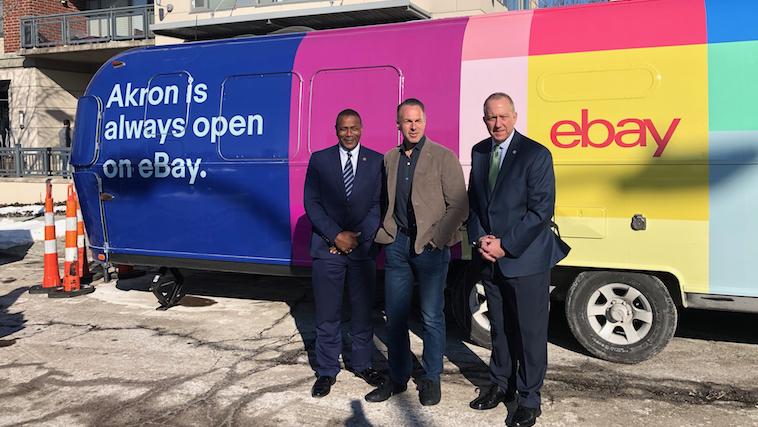Millions of American Small Business Owners Feel Left Behind, and This Is How Tech Can Help
We have a structural advantage in tech, so let’s make the most of it.

by Devin Wenig, President and CEO, eBay
In the last few decades, the technology sector has been a cornerstone of innovation in the United States. It has sparked rapid growth, provided access to global markets and created entirely new, massive industries — generating an estimated $1.3 trillion and accounting for about 8% of U.S. GDP.
Despite all this, we see greater divides between a few, tech-rich, urban hot spots and the rest of the country. Many feel left behind by globalization, technology innovation and particularly automation.
The entire U.S. economy is moving rapidly to a tech-enabled one, and because of that it’s critical to focus on the role tech can play to revitalize communities impacted by the flight of manufacturing jobs. And this needs to go beyond reskilling everyone to become tech workers.
One of the most meaningful ways technology companies can make an equitable impact is by bringing back to life the real engine of the U.S. economy — small businesses.
Small businesses are already the biggest generator of jobs in America. They make up almost half of private sector employment. Those of us in tech and in the public sector need to take the next step to rev that engine more.
We have seen that small businesses have largely been locked into local — and sometimes depressed — markets. Less than 2% of all U.S. small businesses export. On the other hand, over 95% of American small businesses on the eBay marketplace export.
Technology platforms like ours link these businesses to the world, creating more local jobs and resilient local economies. We are in favor of tax reform and infrastructure expansion as a way to generate jobs, but getting small businesses to adopt technology in the right way — which would in turn help them scale — could dwarf the benefits of these reforms in terms of job creation.
In recent years, Detroit, Denver, Boston, Salt Lake City, Austin and Dallas have emerged as tech hubs, apart from Silicon Valley. The reality is that the next phase of the tech build-out has to extend to the entire country. The question, then, is how can we enable the adoption, and will government officials embrace — or constrain — it.
This is the foundation of a partnership between eBay and Akron, Ohio — taking local businesses who often struggle in their markets and giving them effective, affordable tools to reach a new world of consumers.
Once known as the rubber capital because of its tire manufacturing plants, Akron has seen jobs go away as manufacturing moved overseas. The city has been looking for ways to connect with the wider world.
We are trying something new — a retail revival initiative in Akron that uses the power of the online marketplace and technology to build a reservoir of resources to help entrepreneurs scale.
Small businesses, like Tiny Circuits that designs and builds small open source electronics in an old rubber factory in Akron, will benefit from exposure on technology platforms like ours. It will help them gain access to 190 markets around the globe.
Creating pathways between remote areas and urban centers is beneficial in recirculating economic prosperity. Instead of painting the tech sector and innovation as job destroyers, we need a new model of public-private tech partnership where technology companies and public officials come together to rev the small business engine.
For our part, we are going to do more to reach out to communities like Akron. We want to work with small enterprises, and help them be job generators.
But we cannot do that successfully without strong public-private partnerships. We need the government to facilitate investment in reliable, high-speed broadband in rural areas. We need net neutrality so that if small business owners build their own digital platforms, they won’t be disadvantaged. We also need fair taxation with appropriate small business exemptions, to allow small businesses in the U.S. to be able to compete and thrive.
As technology becomes the central focus of our lives, it’s up to us in the industry and the government to have candid conversations about the role we play in architecting the next industrial revolution. At the end of the day, the U.S. economy is going to be a technology economy. And we should ensure it is inclusive and equitable for all.
This column originally appeared on USA Today's website on January 19, 2018.

